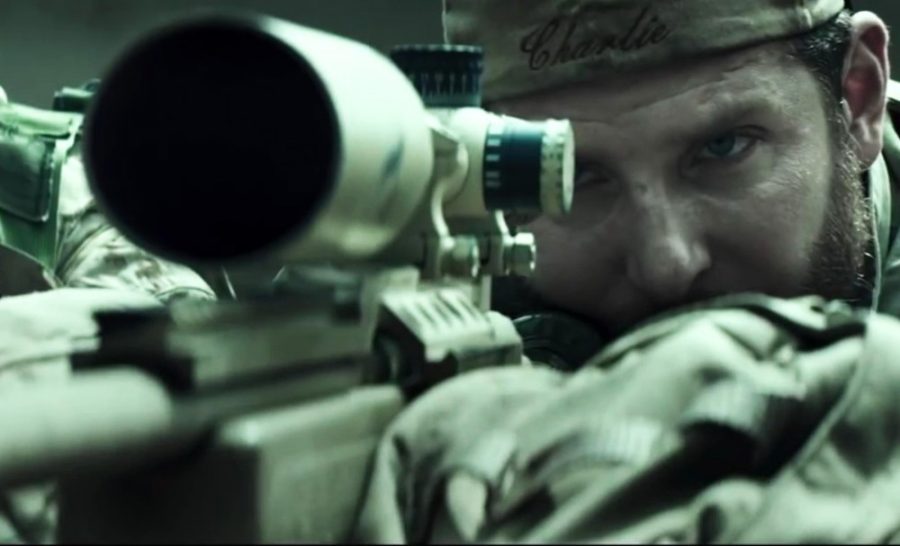Based on the memoir “American Sniper: The Autobiography of the Most Lethal Sniper in U.S. Military History,” “American Sniper” attempts to tell the tale of Chris Kyle, who is played with confidence by Bradley Cooper. By misdirecting its thematic aim through incorporating a conflict that needn’t be there, “American Sniper” cheats itself of being a defining film of the genre.
Initially, “American Sniper” feels very typical, possibly veering into the unoriginal and derivative. The tense moment highlighted in promotional trailers for the film, where Kyle must make the decision to shoot a little Iraqi boy that has picked up an RPG, makes for a captivating cold open. Then, the film becomes more by-the-book with seen-before tropes that undercut the momentum of such an arresting opening.
As a boy with a strict religious upbringing, Kyle is told by his father that there are three types of people in the world: wolves (those who inflict pain), sheep (those who have pain inflicted upon them) and sheepdogs (those who protect others that cannot protect themselves). Of the three categories, Kyle falls under “sheepdog.” It’s a rather blunt, ham-handed approach to relay a theme.
The recently released Reese Witherspoon hiking flick “Wild” was just saying there are two types of people in the world: hammers and nails — so who’s to say how many different categories of people there are?
In his early ’20s, Kyle hasn’t fulfilled his apparent destiny as a sheepdog, spending his nights as a rodeo cowboy. Marked by the camera pushing in to Kyle’s face for a close-up, a light bulb goes off when he sees video footage of the 1998 bombings of the U.S. embassies in Dar es Salaam and Nairobi. In the very next scene, he signs up for Navy SEAL training.
It’s a no-brainer for Kyle. He sees that “they” are killing “our” guys, and he can make a difference. This kind of dogged single-mindedness will give him the nickname “Legend” as the deadliest sniper in U.S. history, but it may cost him his family, too. Taya (Sienna Miller), Kyle’s girlfriend, then wife, then mother of his children, must bear the loneliness and stress as Kyle signs up for a second tour, a third, a fourth.
The difficult question about “American Sniper” is whether the film shares the tunnel vision of its protagonist.
What draws Kyle back into the field, more so than duty and country, is a personal vendetta that eats away at him. There’s an elusive enemy sniper by the name of Mustafa (Sammy Sheik) who picks off American soldiers, some of whom are from Kyle’s team. The two become each other’s archenemies, a contest that spans years, fought from hundreds, and sometimes thousands, of yards away.
When he’s stateside, Kyle’s impassioned claims to his wife of needing to go back to save more people sounds more and more like an excuse to pursue his white whale. The effects of post-traumatic stress disorder insidiously make their way back to Texas, with Kyle suffering high blood pressure and general paranoia.
It is one detail in particular that compromises Kyle’s characterization. I am speaking of the Chris Kyle of the film, played convincingly by Cooper, and not the Chris Kyle who lived and breathed on this Earth.
Kyle does not want to come back to America when his first child is born, or when his second child is born, or when Taya threatens to leave him. He makes the telephone call to tell his wife that he’s ready to come home only after he’s successfully pulled the trigger from 2,100 yards out on Mustafa, completing his goal while simultaneously ridding himself of purpose.
It should be noted that Mustafa was almost entirely fabricated for the film, and was only mentioned in passing in Kyle’s memoir. The filmmakers apparently needed a human foil for Kyle, but it adds an insincere, ineffective element to “American Sniper” that, unfortunately, comes to define the film and its protagonist.
Grade: C
_______________
Follow Alex Guyton on Twitter.









